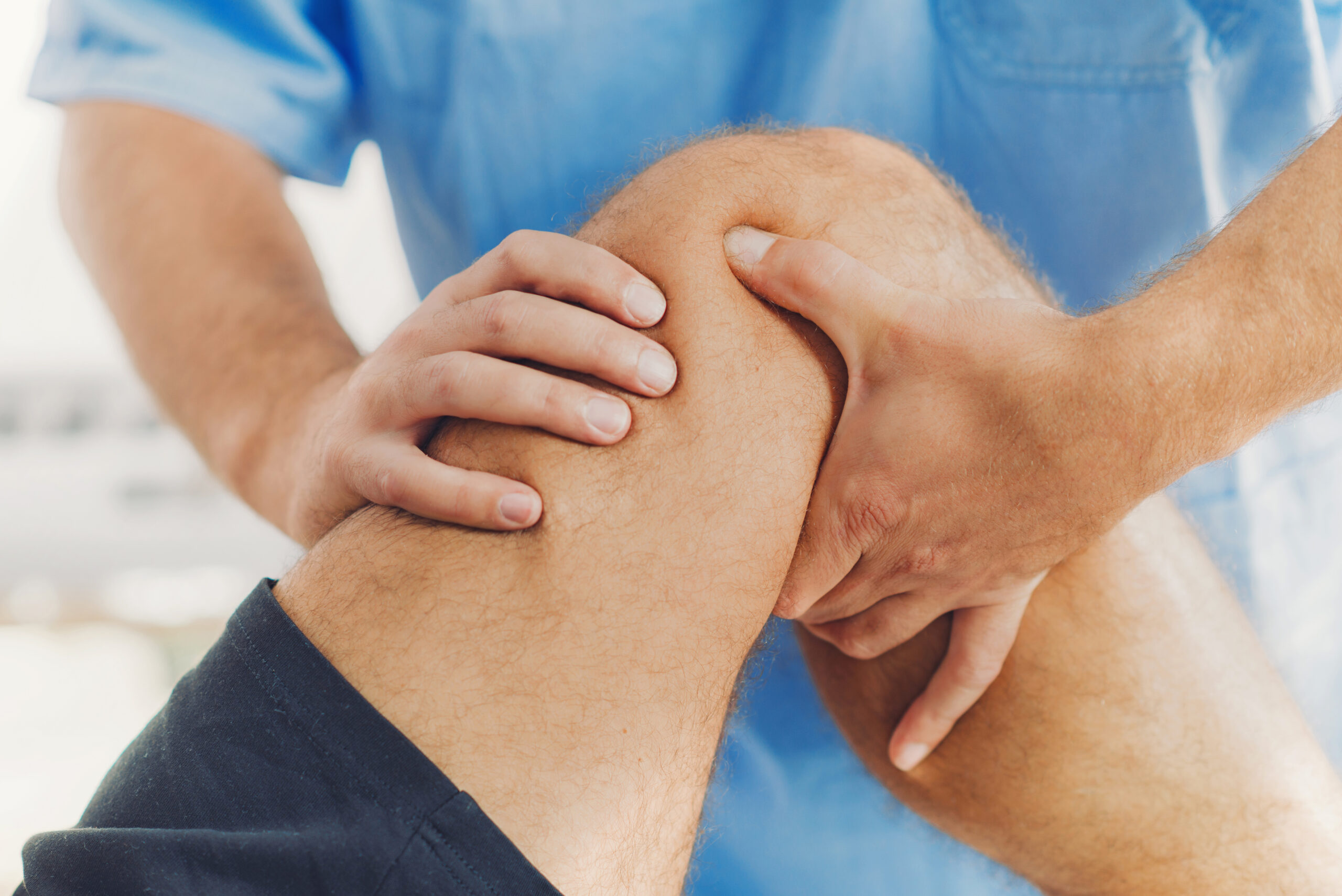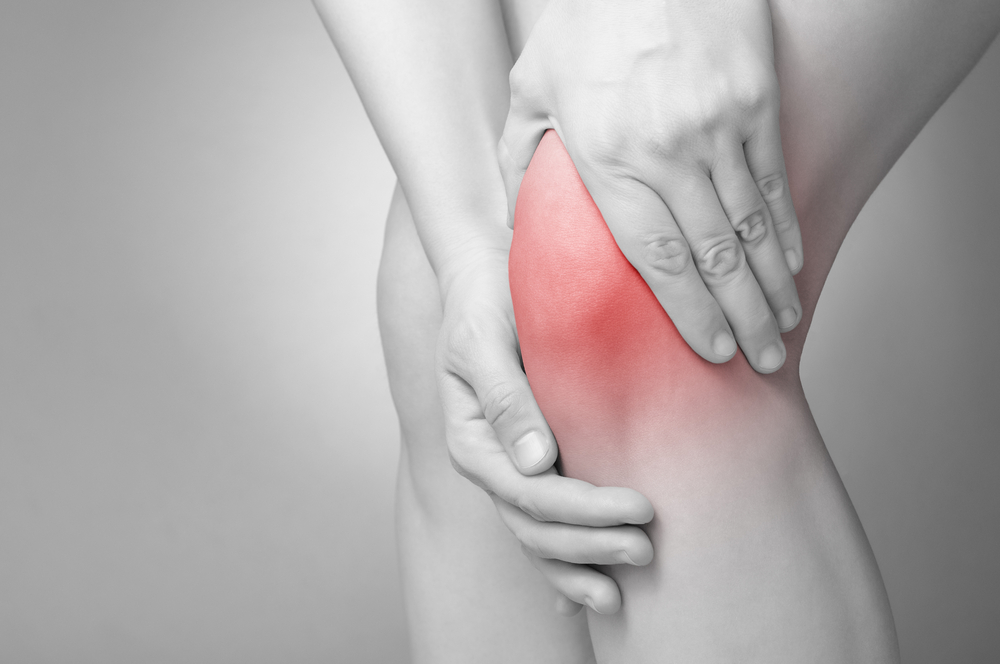Acute Knee Pain Treatment: Identifying Whether You Need It
Acute knee pain treatment may be necessary when you find yourself suffering from a chronic or persistent knee issue. Whenever these issues flare up, they can cause pain, which then makes it hard to walk and/or complete daily routine functions. Pain may present itself when one bends the knee, when weight is put onto the knee, or even just when sitting and/or relaxing.
However, there are many ways to alleviate or eliminate these knee issues, which can then end up giving you a long-lasting remedy for intense knee pain or even a cure for sharp knee pain. It’s easier to deal with pain if you visit a pain management specialist. Doctors who practice anesthesiology are experts in pain management trained to assess patients and develop a customized treatment plan.
According to the Arthritis Foundation, the knee is the largest joint in the body. These knee bones connect the upper and lower leg. When you walk, squat, or sit, you’re using this interconnected system as a hinge.
Seeing a Pain Management Specialist for Acute Knee Pain Treatment
Any acute knee pain treatment plan needs pain management to improve recovery and lessen discomfort. Experts in pain management know how to use pain relief options combined together for the benefit of receiving better results. Some treatments used individually may not seem to make a difference immediately, yet may produce the result one is looking for when it’s a part of a multimodal treatment plan.
Using pain management techniques, pain specialists help patients diagnose and find a remedy for intense knee pain by treating their pain safely and effectively. There’s no need for medication for treatments. Oftentimes, it’s better to manage pain holistically, with or without medications, because it’s more effective.
Your circumstance and an accurate diagnosis from a pain management specialist can help determine what your situation may require and help to find a cure for sharp knee pain.
Factors Determining Your Need for Acute Knee Pain Treatment
Here are some life instances which may require you to seek out acute knee pain treatment. Knee joints are made up of bone, cartilage, ligaments, and fluid. A knee joint moves because of muscles and tendons. You have knee problems if any of these structures are damaged. Here are some very common knee pain causes:
- An injury to the ligament. When you twist your body, you hurt your anterior cruciate ligament (ACL). A car accident or sports injury usually damages the posterior cruciate ligament (PCL).
- Injuries and problems with cartilage. Various things can soften or tear the cartilage in the kneecap, including injury, overuse, muscle weakness, and misalignment.
- Injuries to your tendon. A fall or overuse can cause either inflammation or a tear.
- You’ve developed osteoarthritis. Eventually, cartilage wears away in the knee. Researchers have found that climbing, kneeling, knee bending, squatting, and heavy lifting contribute to knee pain and osteoarthritis.
- You’ve developed rheumatoid arthritis. There’s a possibility the knee will become swollen and cartilage will be ruined.
- Badly bruised or broken kneecap. Falling or direct blow to the knee usually breaks the small, round bone (patella) that sits over the front of the knee.
At What Point Should You Seek Acute Knee Pain Treatment?
Whenever your acute (short-term) knee pain begins to turn into chronic (long-term), it’s time to see a pain specialist to develop a plan for acute knee pain treatment. Most people think this happens when the pain lasts longer than 90 days, but it could happen sooner. Chronic pain is pain that lasts a lot longer than you expect for your condition.
It’s up to a pain management specialist to diagnose and treat you, either on their own or in consultation with other doctors. Depending on your condition, this might include your primary care doctor, your orthopedist, your rheumatologist, or your physical therapist.

In orthopedics, you treat problems with bones, joints, ligaments, tendons, and muscles. Besides treating arthritis, rheumatologists also treat other diseases that cause joints to ache. Patients can increase mobility, ease pain, and prevent further damage with physical therapy exercises and stretches, movement training, and massage therapy. These treatments may work to become your remedy for intense knee pain and/or a cure for sharp knee pain.
Diagnosis, Timing, ‘Referred Pain,’ Testing, and More
Getting an accurate answer on how to proceed going forward with acute knee pain treatment requires a thorough exam. During the exam, see if the pain is coming from the knee. A hip injury is a possible source of referred knee pain. Referred pain occurs when an injury or disease in one part of your body causes pain in another part of your body.
Doctors consider the following information when making a diagnosis:
- Imaging and other test results. Structure damage or abnormalities can be detected with X-rays, MRIs, or CT scans. These image tests can tell if arthritis is present, if the space between the bones is narrower, bone spurs are present, or if the joint isn’t aligned.
- An overview of the patient. It’s important for the physician to determine whether there have been any accidents or sports injuries. Besides asking where and when you feel pain, the doctor will also ask you how long it lasts.
- Features and characteristics of the patient. Certain traits make people more likely to get certain conditions. Older adults are more likely to develop osteoarthritis, and people who practice athletic activities are more likely to suffer from overuse injuries. It’s also possible to have some conditions because of obesity, which easily adds extra stress onto your joints when walking.
- Physical exam results. During an exam, your doctor moves and probes your knee for damage. It includes looking for pain behind the knee, in front of the knee, or inside or on top of the knee.
Other Tests to Determine Treatment
Special tests can also identify the type of arthritis you have. Other tests to start you on your journey for picking the right acute knee pain treatment may include:
- Checking fluids. In order to examine your knee joint, doctors can draw fluid from it. The fluid can show uric acid crystals if gout is causing inflammation and pain. An infection caused by the presence of bacteria is responsible for these symptoms.
- Completing a blood workup. Rheumatoid arthritis can be detected by bloodwork with anti-CCP antibodies. Besides antibodies, other conditions may be related to inflammation throughout the entire body, like lupus.
- CAT scans and MRIs create more detailed images of bones and soft tissues so they’re more useful for diagnosing injuries and unexplained swellings. If your doctor suspects that you have a cartilage or ligament tear, they will most likely order an MRI.
Treatments Can Vary, so Consider All Your Options
Acute knee pain treatment depends on your injury. Also, your preferences in treatment may change. Consider all your options. Here are some examples:
- Make changes to your lifestyle. Weight control, for example, reduces knee pain, and in some instances, may even be a remedy for intense knee pain. Activities such as running can cause knee pain by exerting too much force on the joint.
- Take it easy, ice, compress, and elevate. Treatments for chronic pain are different. These things may work for acute pain. Pain may sometimes get worse with rest, weakening muscles that need strengthening.
- Getting fit and exercising. You can build or stretch your muscles and ease your pain with some exercises. Also, you should learn which exercises to avoid because they could possibly harm your knee even more.
- Blocks for the genicular nerve. To provide short-term relief, a healthcare provider can administer an anesthetic injection. Radiofrequency ablation might offer a long-term relief, if it’s effective. During this procedure, heat is used to coagulate the nerve proteins, which ends pain.
- Therapy for regenerating cells. Researchers are still investigating the effectiveness of plasma injections and stem cell treatments. The research is still in the early stages, so it’s still hard to say.
- Treatments that complement traditional medicine, such as acute knee pain treatment. There are a lot of ways you can find relief, like through massage, biofeedback, relaxation, meditation, acupuncture, or yoga.
- There are over-the-counters and prescription drugs. Other medications, like steroids, can help. Your pain management specialist should oversee your medication plan. It’s also important to be careful with anti-inflammatory medications and steroids, since they can damage cartilage and joints.
- Surgical procedure. Repairing structural damage is the main purpose of this last option. You should never go for surgery first, but sometimes it’s the best option.
Wellness and Pain
At Wellness and Pain, the best doctor for acute knee pain treatment can perform a quick 10-minute ultrasound to diagnose and treat you so you can live a healthier, more active life free of pain. We also offer other diagnostic tests, such as nerve and muscle testing, for a deeper assessment of what’s actually going on with your knees and legs. Get started by resolving to seek out a remedy for intense knee pain and/or a possible cure for sharp knee pain today!











